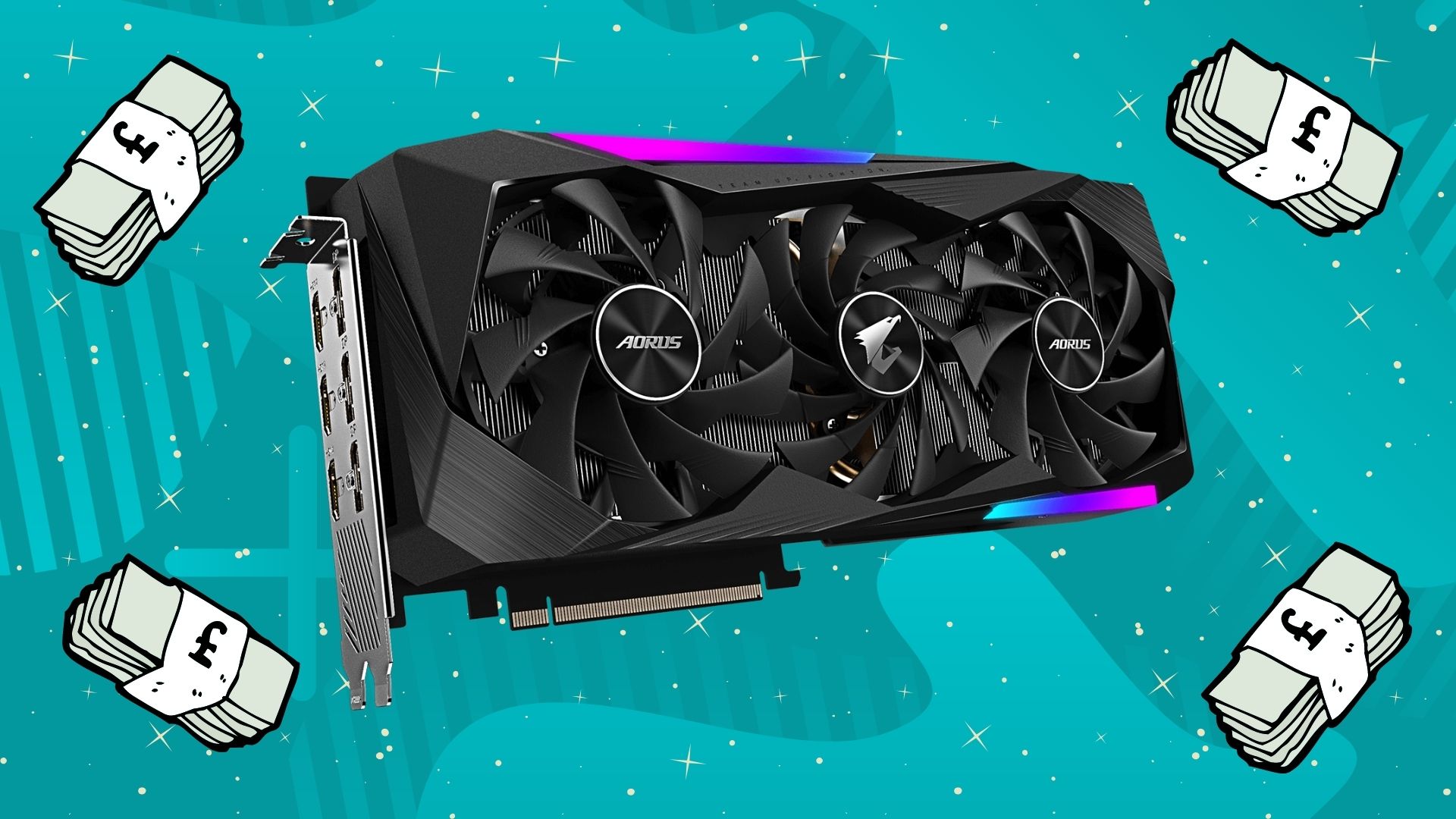Overclockers are selling an RTX 3070 for £5,000 – here's why
No amount of Haribo with your order will fix this

The best graphics cards on the market are currently harder to find than gold dust due to a frustrating mix of competition from cryptominers building mining rigs, scalpers using bots to buy up available inventory, and pandemic-related supply issues that are affecting the greater world of tech.
Popular computing supplier Overclockers are now taking things into their own hands to deter anyone from buying a GPU for anything other than gaming by artificially inflating the price of highly desirably graphics cards like the RTX 3060 and RTX 3080 to an insane markup. Don't worry, Overclockers will supply a voucher post-purchase to reduce the pricetag down to normal levels – but that's a hassle that will hopefully ensure gamers are the only ones buying these cards.
This seems like a fantastic idea in concept, but chances are you won't qualify for a voucher unless you're considered a loyal customer. In other words, you need to be active on the Overclocker forum with at least a six-month old account and over 1,000 posts to your name.
We have reached out to OverClockers for comment.
- AMD vs Nvidia: which should be your next graphics card?
- These are the best gaming laptops on the market
- Amazon’s Prime Day 2021 sale is on the horizon
You can't sit with us
This plan was initially discussed as a proposal on the Overclockers forum, but live prices now being listed on the site indicate this has now been actioned. Our reactions on this system are mixed – any attempt to proactively prevent these coveted GPUs from being snapped up by miners and bots is laudable, and if this system works then Overclockers might be one of the few British-based retailers to actually put these cards into the hands of gamers.
That said, the steep requirement for membership to these voucher codes will be unachievable by even the most dedicated gamer if they're not a very active member on the Overclockers forum – which may be hard to verify before paying for a card. For anyone new to DIY PC building, you're not likely to get into the club and you'll have to look elsewhere or pay through the nose for your first build.
The way the system was initially proposed to work is as follows:
- Cards will be listed on website with a huge markup, such as £5,000 - £20,000
- A voucher code will then be made to get the card down to close to MSRP where possible
- The voucher will be time and quantity limited to help prevent over sale
- The deal/voucher code will only be posted in the members market, exclusive to long-term forum members
- Anyone caught spamming the forum's to increase post count will be reprimanded and have their access removed
- The deal SKU is one unit per customers and limited to UK only customers
- If OverClockers identifies someone selling a voucher code deal at a scalped price they will be banned from the forum
There's no denying that this is an absolute win for gamers and PC hobbyists who have been active on the OverClockers forums for some time, though it's hard not to find the requirements for one of these vouchers alarmingly high. Sadly, extreme measures like these might be what it takes to combat the escalating graphics card inflation.
With any luck we will see the market for GPUs start to improve over the coming months, though the shortage could last into 2022. For anyone still trying to take their first steps into the world of PC gaming, you may want to invest in a more freely available gaming laptop or a pre-built system. For anyone else, it might be time to start getting cozy with your favourite component supplier.
- Find the best Nvidia GPU for you
Get daily insight, inspiration and deals in your inbox
Sign up for breaking news, reviews, opinion, top tech deals, and more.
Jess is a former TechRadar Computing writer, where she covered all aspects of Mac and PC hardware, including PC gaming and peripherals. She has been interviewed as an industry expert for the BBC, and while her educational background was in prosthetics and model-making, her true love is in tech and she has built numerous desktop computers over the last 10 years for gaming and content creation. Jess is now a journalist at The Verge.
